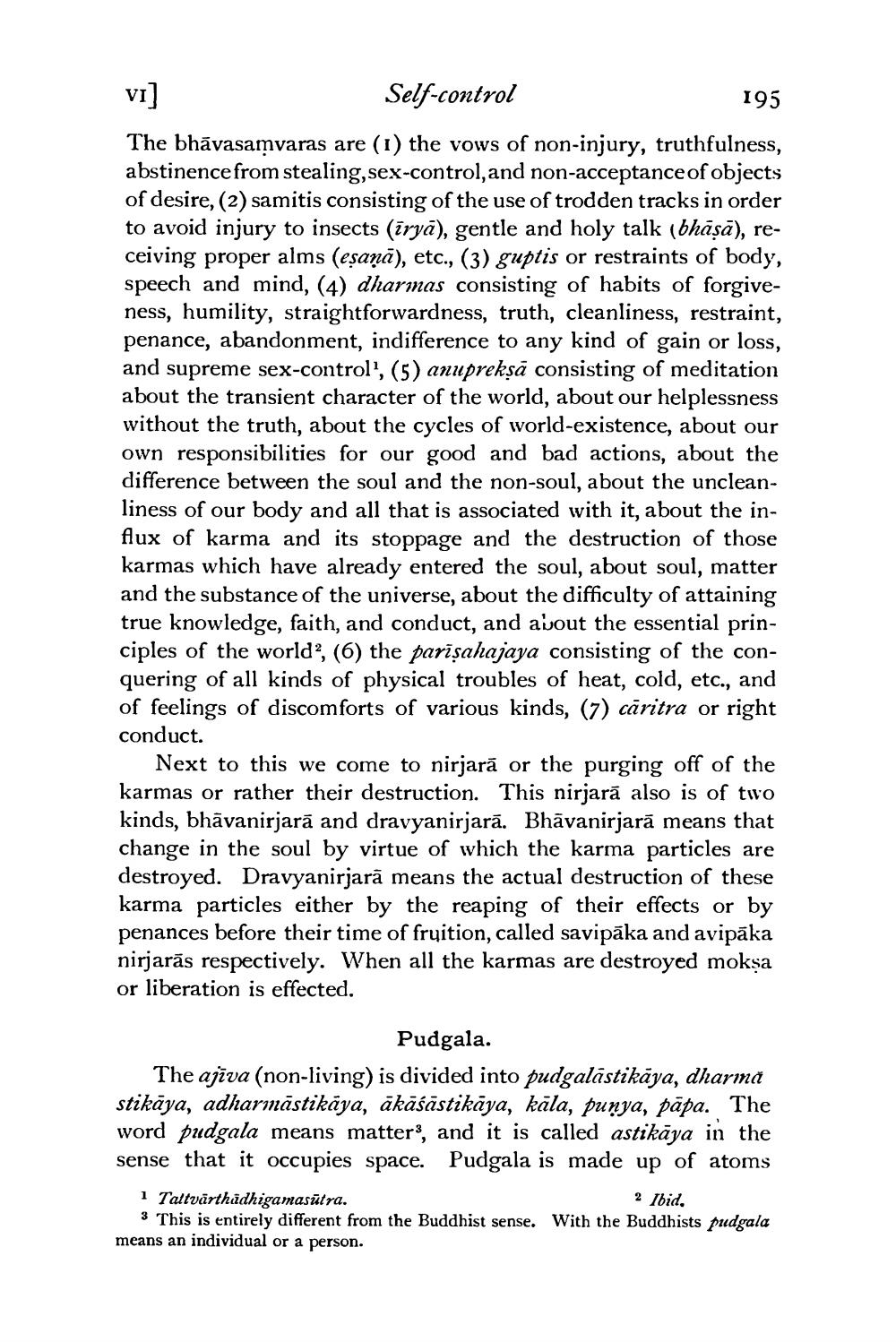________________
VI]
Self-control
The bhavasamvaras are (1) the vows of non-injury, truthfulness, abstinence from stealing, sex-control, and non-acceptance of objects of desire, (2) samitis consisting of the use of trodden tracks in order to avoid injury to insects (irya), gentle and holy talk (bhāṣā), receiving proper alms (eṣaṇā), etc., (3) guptis or restraints of body, speech and mind, (4) dharmas consisting of habits of forgiveness, humility, straightforwardness, truth, cleanliness, restraint, penance, abandonment, indifference to any kind of gain or loss, and supreme sex-control1, (5) anuprekṣā consisting of meditation about the transient character of the world, about our helplessness without the truth, about the cycles of world-existence, about our own responsibilities for our good and bad actions, about the difference between the soul and the non-soul, about the uncleanliness of our body and all that is associated with it, about the influx of karma and its stoppage and the destruction of those karmas which have already entered the soul, about soul, matter and the substance of the universe, about the difficulty of attaining true knowledge, faith, and conduct, and about the essential principles of the world2, (6) the pariṣahajaya consisting of the conquering of all kinds of physical troubles of heat, cold, etc., and of feelings of discomforts of various kinds, (7) căritra or right conduct.
195
Next to this we come to nirjarā or the purging off of the karmas or rather their destruction. This nirjarā also is of two kinds, bhavanirjarā and dravyanirjarā. Bhāvanirjarā means that change in the soul by virtue of which the karma particles are destroyed. Dravyanirjara means the actual destruction of these karma particles either by the reaping of their effects or by penances before their time of fruition, called savipaka and avipāka nirjarās respectively. When all the karmas are destroyed mokṣa or liberation is effected.
Pudgala.
The ajiva (non-living) is divided into pudgalāstikāya, dharma stikāya, adharmastikāya, ākāśāstikāya, kāla, punya, papa. The word pudgala means matters, and it is called astikāya in the sense that it occupies space. Pudgala is made up of atoms 2 Ibid.
1 Tattvärthadhigamasutra.
3 This is entirely different from the Buddhist sense. With the Buddhists pudgala means an individual or a person.




